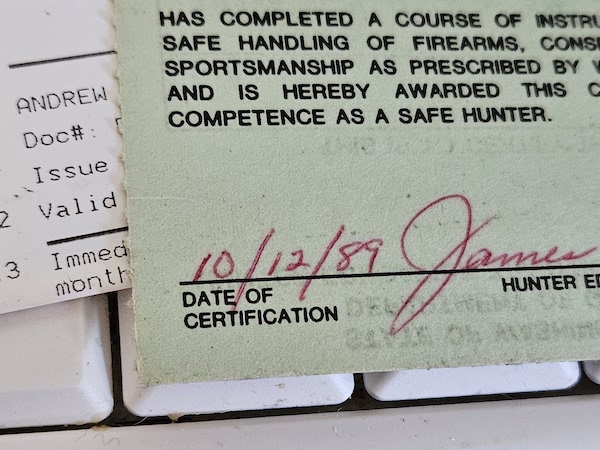
Congress Asked To Amend Bill Barring Funding Hunter Ed, Archery
A federal Department of Education decision not to fund hunter education and archery programs based on its reading of 2022’s Bipartisan Safer Communities Act is drawing increasing pushback, with the National Wildlife Federation this morning calling on Congress and the Biden Administration to “act quickly, in bipartisan fashion, to amend” the bill when lawmakers reconvene next month.

“For decades, hunter education programs in schools have taught students about wildlife management, firearm and archery safety, wilderness survival skills, and conservation. Perhaps most importantly, these programs instill in children a deep respect and appreciation for wildlife and the great outdoors,” said Collin O’Mara, NWF president and CEO, in a press release. “When Congress returns in September, both chambers should move quickly to pass a bipartisan, durable solution so these important enrichment programs can continue to receive funding through the Elementary and Secondary Education Act.”
Word of the Department of Education’s interpretation of the act began to emerge in late July with a piece posted to Fox News reporting the agency had determined “school hunting and archery classes are precluded from receiving federal funding.”
A spokesman at the Department of Education told this reporter on background that it was “administering the bipartisan law as written by Congress.”
“On June 25, 2022, President Biden signed into law S. 2938, the Bipartisan Safer Communities Act. Section 13401 of the Act amends section 8526 of [1965’s Elementary and Secondary Education Act] to add a prohibition that no funds under the ESEA may be used for the provision to any person of a dangerous weapon, as defined in section 930(g)(2) of title 18, United States Code, or training in the use of a dangerous weapon. (Dangerous weapon is defined in section 930(g)(2) as a weapon, device, instrument, material, or substance, animate or inanimate, that is used for, or is readily capable of, causing death or serious bodily injury, except that such term does not include a pocketknife with a blade of less than 2 1/2 inches in length.),” the spokesman stated.
The so-called “plain text” interpretation was pushed back on by US Senators John Cornyn and Thom Tillis, who stated in a letter that the Department of Education had “misinterpreted” the intent of Congress with the act.
“Archery and hunter safety education programs are important to millions of students and families across the country. The results speak for themselves. Neither the BSCA’s text nor the intent of the law would limit educational programming for millions of students – and especially not programming that would otherwise support and fortify student mental health and safety. When the Department exceeds its scope under the law, it will frustrate and disincentive further legislation,” the Republican senators wrote.
Safari Club International and the Sportsmen’s Alliance have filed an intent to sue the department over its interpretation.
And the Oregon Hunters Association has organized an action alert urging its members to contact the Department of Education and its secretary, Miguel Cardona “to continue funding these programs, and the schools that provide them, so our next generation has the opportunity to learn safe and responsible firearm and archery skills.”
This reporter took hunter education at Woodinville High School, completing it just in time to go deer hunting with his dad that season. That the program would be suddenly be interpreted as training in a dangerous weapon instead of the safe handling of firearms is pretty preposterous. I hope Congress, the Biden Administration and Department of Education correct this error, and quickly.

